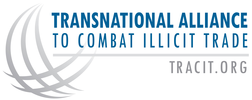|
Excerpts from Stefano Betti Address to FICCI Anti-Smuggling Day Conference on February 11, 2022.
Good morning, ladies and gentlemen, and many thanks to FICCI for the opportunity to say a few words on the occasion of the Anti-Smuggling Day. Smuggling is a complex and multifaceted phenomenon. It is a vast subject, and there are many perspectives that could be addressed. So, in the little time available to me, I will just put forward a few key points for your consideration. Those are points that TRACIT - the organization I am representing here - is busy addressing with its governmental partners, international organizations and the business community at large. The term “smuggling” is itself the object of numerous definitions that differ from each other depending on whether they are used in a legal, policy, law enforcement or academic context. There are also variations based on the type of goods under consideration. Despite the differences, however, all existing definitions have a minimum common denominator, which is captured in the idea of smuggling being a set of activities aimed at moving or facilitating the moving of goods across borders in violation of applicable laws. It is important to highlight that smuggling activities generate a wide range of negative impacts on society and the economy. Notably:
In addressing smuggling - either in general or in relation to specific manifestations - I always find it useful to examine the problem in terms of its drivers, enablers, and the possible responses to it. Let me then start with the drivers. I will mention just a few:
Turning to the enablers:
Which leads me to say something about the ways to respond to smuggling practices. Without claiming to be exhaustive, there are two or three of points worth throwing into the discussion:
Let me conclude by saying that smuggling is one of the oldest activities that humans have engaged in since they have organized themselves in sovereign political communities. It cannot be eradicated, but it can be better controlled, and its consequences mitigated. I very much hope that this important event will contribute to rejuvenating efforts in this area and steer policy-makers’ agenda towards renewed attention for this problem. Comments are closed.
|
About tracit talking pointsTRACIT Talking Points is a channel we’ve opened to comment on current trends and critical issues. This blog showcases articles from our staff and leadership, along with feature stories from our partners in the private sector and thought-leaders from government and civil society. Our aim is to deepen the dialogue on emerging policy issues and enforcement measures that can be deployed against illicit trade.
Categories
All
Archives
February 2024
|
|
Transnational Alliance to Combat Illicit Trade (TRACIT) is an independent, non-governmental, not-for-profit organisation under US tax code 501(c)(6).
© COPYRIGHT 2024. ALL RIGHTS RESERVED. |
Follow us
|
